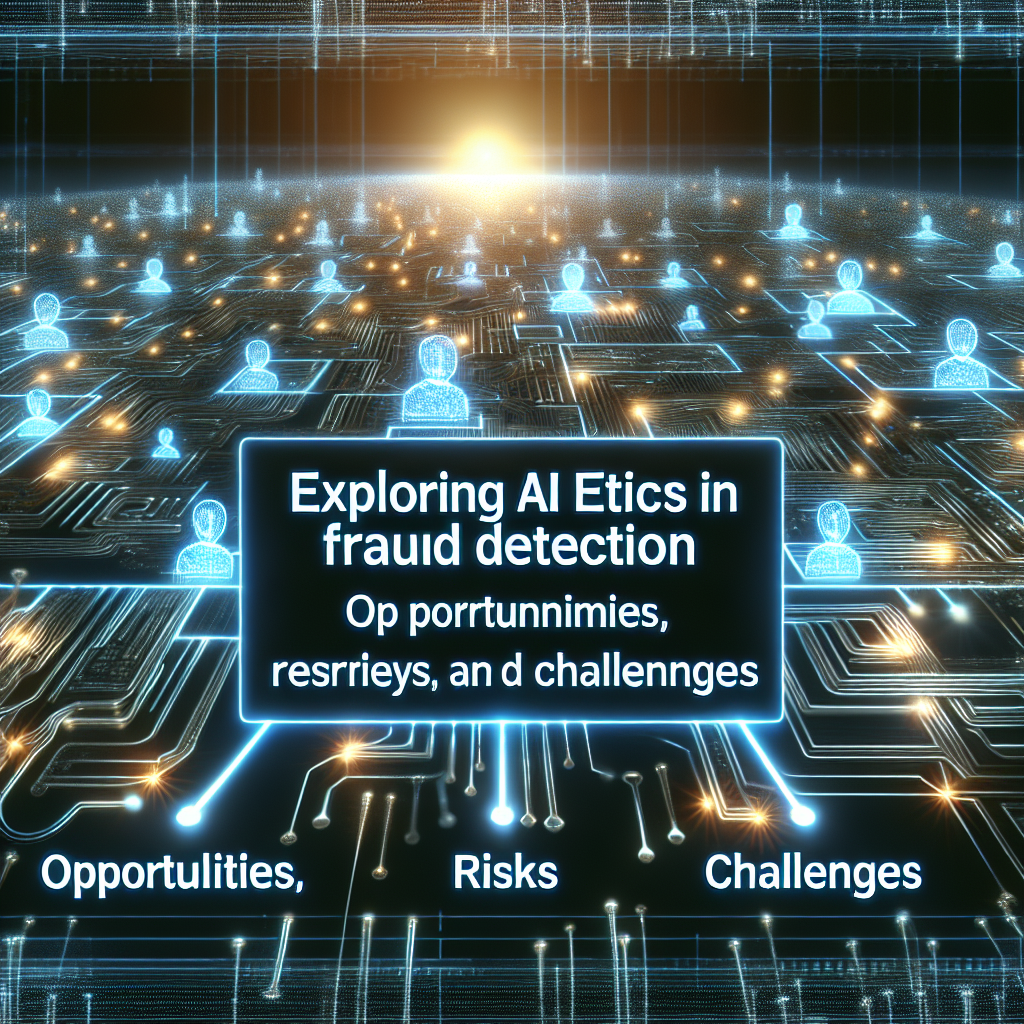Introduction
In the bustling realm of today’s digitized healthcare, $68 billion announced by the National Health Care Anti-Fraud Association is lost annually due to fraudulent practices, plaguing the industry credibility and financial sanctity. A fascinating solution that promises to uplift this situation is AI (Artificial Intelligence), suggesting high efficacy in detecting and preventing fraud. However, the aspect of “AI Ethics in Fraud Detection: Risks and Challenges” presents crucial points that demand attention.
Why is this Important?
AI’s potential in preventing dodgy practices like double billing, phantom billing, upcoding, and unbundling is revolutionizing the medical field. Yet, integrating AI into the sensitive and personal world of medical data bears a fresh set of ethical implications. Balancing absolute data privacy, AI transparency, robust security against the evident need for fraud detection, the dilemma unfurls in the deeper layers of AI Ethics in Fraud Detection: Risks and Challenges.
AI Solutions in Fraud Detection
AI ushers brilliant solutions in fraud detection via techniques such as machine learning, predictive analytics, and deep drive data analysis. For instance, AI can discover unusual patterns or anomalies in billing practices, identify the chances for upcoding, and detect if services are bundled unnecessarily or unbundled, causing overpricing.
However, essential to understanding AI Ethics in Fraud Detection: Risks and Challenges, is acknowledging the ethical dimensions. AI systems must be programmed to respect privacy boundaries and ensure unbiased decision-making while delivering high potency in proactive fraud detection.
Future Trends
Developments on the horizon include more robust, adaptive AI models that continually learn from the healthcare environment, becoming ever more accurate in spotting fraud. But along with these advancements comes the growing complexity in maintaining machine ‘ethics’. As AI becomes smarter, ensuring it abides by a human-like moral compass can be an escalating hurdle in comprehending AI Ethics in Fraud Detection: Risks and Challenges.
Case Studies
1. *’Pharmacy A’*, a hypothetical case, successfully incorporated an AI system to monitor their invoicing. It caught instances of double billing, saving thousands of dollars. However, the revelation of patients’ personal data to the AI system raised concerns about data privacy, an ethical component that can’t be ignored.
2. On the brighter side, *’Hospital B’*, instated cutting-edge AI with efficient anonymization techniques. This real-world case validates that with careful planning, AI can be leveraged to the fullest, ethically conquering fraudulent practices.
Actionable Takeaways
For industry professionals looking to integrate AI for fraud detection, considering potential ethical risks and challenges should be as crucial as the benefits.
1. Prioritize transparency in AI decision making, ensuring its observance of regulations.
2. Implement robust security measures to protect sensitive data from being misused.
3. Consider third-party audits of the AI system’s ethical framework and its adherence to privacy mandates.
Whether it’s tackling double-billing or combating the ghostly phantom billing, AI brings hope in revolutionizing medical fraud detection. However, the conversation on “AI Ethics in Fraud Detection: Risks and Challenges” is one that we must continue to explore, affirm, and fortify.
Hence, it behooves healthcare organizations to engage with AI development teams that consider ethical implications seriously. By providing transparency, ensuring secure data usage, and implementing audits, we can traverse this uncharted terrain more confidently.
Call to Action
Stay ahead and stay progressively ethical in this AI era by embracing the potential of AI, without turning a blind eye to the risks and challenges. Dive deeper into the realm of AI Ethics in Fraud Detection: Risks and Challenges by connecting with us. Together, let’s turn the risks into opportunities for ethical growth and proactively combat medical fraud!



